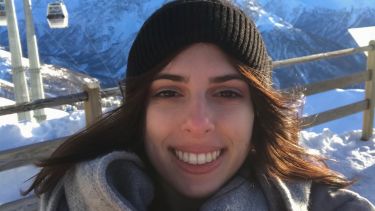After my MSc I was hired at the prestigious Max-Planck Neurobiology Institute

"As an undergraduate, I realised there were two fields of interest I wanted to consolidate and pursue a career in: genetics and patient care. During my final year in the Animal and Plant Sciences Department at the University of şů«Ӱҵ, I therefore searched for a Master’s Degree that would give me the tools I needed for changing tracks into medical genetics while also giving me an edge in the field. The extensive laboratory training in molecular biology techniques and lectures tailored towards human diseases were what inspired me to apply for this MSc exclusively.
My greatest worry was that I would be behind other students that had focused on molecular biology since the beginning of their academic career. However, through the excellent support and quality teaching provided by Dr Hodgson and Dr Turton, these worries were put to rest very early on.
Nicolina Zjacic
MSc Human and Molecular Genetics
"My greatest worry was that I would be behind other students that had focused on molecular biology since the beginning of their academic career. However, through the excellent support and quality teaching provided by Dr Hodgson and Dr Turton, these worries were put to rest very early on. The lecture modules were appropriately challenging instead of overwhelming, and the first-semester laboratory module was designed to build confidence in techniques ranging from PCR to CRISPR protocols with no pre-assumed experience.
"By the start of second-semester, I was fully prepared to tackle a novel independent research project, which aimed to positively impact patient care and diagnostics in the future. It was because of the project’s development of my independent research skills and relevance to clinical science that I was hired at the prestigious Max-Planck Neurobiology Institute caesar and accepted for my dream PhD at the University of Zurich within two months of graduating.
"Currently, I work as a Research Assistant at caesar, where I am developing behavioral assays alongside microscopes and software that can automatically track the feeding behavior of free-moving C. elegans. Through this role, I have learned new skills such as Python language and have experience with creating a project from the ground up. Excitingly, my PhD starting in September 2020 will be at the Institute of Medical Genetics in Zurich, which acts as both a University department and center for laboratory diagnostics and genetic counselling.
"The functional genetics work I will be conducting on cells from patients born with epilepsy will be directly used by Praeclare, a Swiss-led project aiming to improve reproductive genetic testing by exploring the variant pathogenicity of development disorders.
"I would highly encourage anyone passionate about a career in medical genetics to apply for this unique, student-oriented course, and would like to thank Dr Hodgson and Dr Turton for the dedication they have for this MSc."

